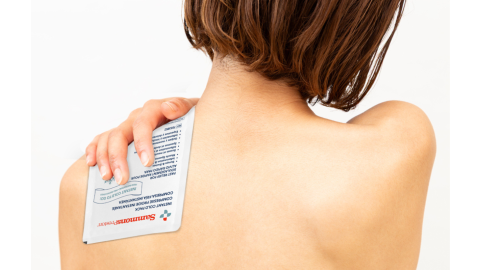Every year, 25% of people over the age of sixty-five experience a fall.1 With serious injuries resulting from many of these falls, it’s important to know if you’re at risk. Take this simple quiz to find out if you should worry about your likelihood of falling.
7 Question Fall Risk Test
1. Have you fallen in the past year?
You are more likely to fall again if you’ve had a previous fall in the last six to twelve months.
2. Are you over the age of sixty?
Older adults are at a great risk for falls. As you age, your risk of falls increases.
3. Are you on a medication that increases your risk of falls?
Some medications have side effects that increase your risk of falls. High fall-risk drugs include opioids, anticonvulsants, diuretics, sedatives, and other medications.
Talk to your doctor or pharmacist about the medications you are on and if they may cause side effects like dizziness, lightheadedness, confusion, lack of coordination, or sleepiness during the day, which can put you at risk for falls.
4. Are you on more than four medications?
Medications, including both OTC (over-the-counter) and prescribed meds, can put you at risk for falls.
Taking more than four medications increases your risk because of the side effects of taking multiple medications and the possible interactions with other medications you are taking.
Talk to your doctor before taking any new OTC medication and ask about how your meds could react to each other. Your doctor may suggest an alternative medication or lower your doses.
5. Do you have Parkinson’s disease? Or have you had a stroke?
Parkinson’s disease can affect your balance and how you walk, increasing your chance of falls. Falls are also more common after a stroke due to leg weakness, loss of sensation, and balance and eyesight problems.
6. Do you have problems with balance and mobility?
Difficulty walking and moving puts you at an increased risk for falls. If you have an unsteady gait while walking, need assistance when walking or transferring, or struggle to balance on one leg (after a few practice attempts) you should answer “Yes” to this question.
Mobility aids, like canes, walkers and wheelchairs, can help you keep your mobility while lessening your fall risk. Talk to your doctor about what options would work best for you.
7. Do you have difficulty standing up from a chair (dizziness or lightheadedness)?
You should be able to stand up from a chair without using your arms. If you feel dizzy, lightheaded, unsteady, or faint after standing, you might have low blood pressure. Low blood pressure, when you transition from sitting to standing or from lying down to sitting up, and its symptoms increase your risk of falls.
If you’ve answered “Yes” to two or more of the questions above, you could be at risk for falls. Talk to a medical professional to learn about your risk and if you would benefit from meeting with a fall specialist to go over prevention strategies. And learn more about fall prevention and how to reduce your likelihood of falls!
References
- Centers for Disease Control and Prevention. (n.d.). Important Facts About Falls. Retrieved from https://bit.ly/2mjZik6
- John Hopkins. (2007). Fall Risk Assessment Tool for Home Health Care. Retrieved from https://bit.ly/2C8adpG
- NHS. (2018). Are you at risk of falling? Retrieved from https://bit.ly/2MMPkoC
Medical Disclaimer: The information provided on this site, including text, graphics, images and other material, are for informational purposes only and are not intended to substitute for professional medical advice, diagnosis or treatment. Always seek the advice of your physician or other healthcare professional with any questions or concerns you may have regarding your condition.








 France
France Australia
Australia






